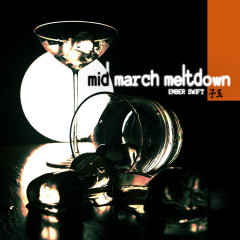Finger Lickin' Normal
Every once in awhile, I need to write a blog in the present. Most of these entries are retrospectives—wistful glances at the early days of this amorous, but anomalous, adventure in my most recent romantic history. Yet, the adventure continues.
As many of you regular readers have learned, this is not just a blog about a relationship; it’s also a blog about navigating another culture through a relationship. I am constantly learning and, likewise, constantly UNlearning when it comes to the perceptions of common cultural practices and/or expectations of “normal.” That, I’ve found, is the key to a peaceful intercultural relationship, in fact: the willingness to clean the slate and re-evaluate.
I am in Canada with my husband, Guo Jian, and we have been joined by my MIL (mother-in-law) for her first trip to the West. They are in my land now—on my “turf”—and it’s the place where I feel the most at home in the world. Being back in my homeland always gives me a lot of insight but, in this case, it’s also given me additional insight into my “home away from home” of China.
The first week with my MIL was, well, trying. That’s the nicest way I can think of to describe what it was like to deal with a woman who was too stubborn to admit to being jet-lagged, cantankerous about the food (or lack of food worth eating, in her opinion), and extremely judgmental and quick to make assumptions about everything that constituted her first impressions of Canada. She made dozens of sweeping generalizations as though a week was enough time to understand all of Canadian culture, and she regularly said or did offensive things in front of friends or family without editing herself and/or without awareness.
Now, I know she’s new to the West. My compassion was well stacked for her arrival. I know she doesn’t know the ways here and that she was going to do some strange things in the eyes of my friends and family. That was to be expected. No harm done.
But, saying offensive things was unfair. I was the only one who understood both parties and I had to “fake translate” a few of her commentaries about situations about which she felt free to speak openly because “no one here understands her.” Later, when we were alone, rather than asking her to be considerate of my difficult position as cultural bridge, I maturely chose “the fear tactic” and reminded her that many, “MANY” people study Mandarin and perhaps some of my friends and family are among them. I chose well. She quickly reeled it in.
Behaviourly, however, my mother-in-law was just being her Chinese self. That includes things like wearing what appears to be a nightgown as her “house attire” at all times of the day, including outdoors on the patio. Or, hanging wet laundry from anything that she could find indoors and outdoors to the point where clothing has taken over the yard or the living room, much to my mother’s or friend’s confusion. Whether it’s rarely putting things in the refrigerator at night or barking orders at everyone regardless of their level of Chinese comprehension, obsessing about the extreme cost of vegetables here or grumbling about the absence of proper knives or woks in Western kitchens, my MIL is a Chinese woman in a foreign land.
For once, she is the foreigner.
And on that note, it took two solid weeks of constant reminders before she stopped calling Canadian “foreigners.” I must have reminded her twenty times that SHE is the foreigner here, while THEY (us!) are locals, common folk, average multicultural Canadians who think all of what she’s experiencing is normal. She has done some verbal editing since then, but still just shakes her head every day.
Finally, she is getting a glimpse into what it must be like to live my life in Beijing. I hold a small glimmer of hope that she’ll be more understanding of my moments of cultural despair over in her country in the future. Maybe. But, I’m not holding my breath. My MIL, while a strong and capable woman, is not big on empathy—at least, not the type of empathy that is displayed or communicated, especially when it comes to daughter-in-laws in Chinese tradition. (And that can be the topic of another blog on another day.)
As I’ve mentioned in a previous piece, in mainland Chinese culture, it’s not considered rude to make noises while eating; in fact, it’s considered a sign that one is enjoying the food. (I’ve heard this is true in Japan as well.) On the second day of her arrival, I made my MIL some Chinese noodles in my parent’s kitchen and we ate them for lunch. My own mother quietly and daintily spooned out her “noodle soup” (as she called it) with the bowl firmly rooted on her place-mat. My MIL, on the other hand, slurped hers down noisily, assisted by chopsticks, bowl raised up and balanced in her one hand. Then, she drank the broth directly from the bowl following the full vacuum-style extraction of the noodles. Each mother figure felt no need to mention or react to the other and each felt no shortage of etiquette in their behaviour. I watched with amusement.
Later, I replayed the scene for Guo Jian, who is much more aware of Canadian ways than his mother is. He laughed out loud, but then he quickly added that Canadians do rude things at Chinese dinner tables too. “What?” I asked, defensively, unable to imagine something I hadn’t learned already. “Well, what about licking your fingers?” He asked. “You people lick your fingers all the time. In China, that is something only very young children do and they are taught from a young age not to put their dirty fingers in their mouths. Even your parents licked their fingers when they were in China!”
My jaw hit the ground. I had never been told. How many times have I licked my fingers if they were sticky or had food on them? In the West, it’s an unconscious act that, while informal, isn’t considered terribly rude or inappropriate. Even the media endorses it with slogans like: “finger lickin’ good!”
“Why didn’t you tell me this?” I asked him, shocked. “I would have told my parents not to do it!”
“You do it too!” he fired back. “All the time! I don’t stop you from being yourself, do I? So just let my mother enjoy her noodles as loudly as she wants. You’re not going to change her.”
Wise words. A little slurping doesn’t hurt anyone, right?
Later that evening, while introducing baklava to my MIL, some of the rogue honey got on my fingers while I passed a piece to her. I unconsciously started licking the honey off my forefinger and Guo Jian pointed it out this time, wordlessly, with that sparkle in his eye that I both adore and abhor. I stopped with my finger half-cleaned, self-conscious. He got me.
Normal is as normal does. Every culture sees things from a slightly different perspective in the room. The story changes and the subtleties shift, but the overall plot is the same. Perhaps that is the real definition of normal: a diversity of possible interpretations within the same frame, depending on where in the world we are from.
Even though I’m a proud citizen of this multicultural society, this returning Canadian needed some more cultural training.
Welcome home, to me.








